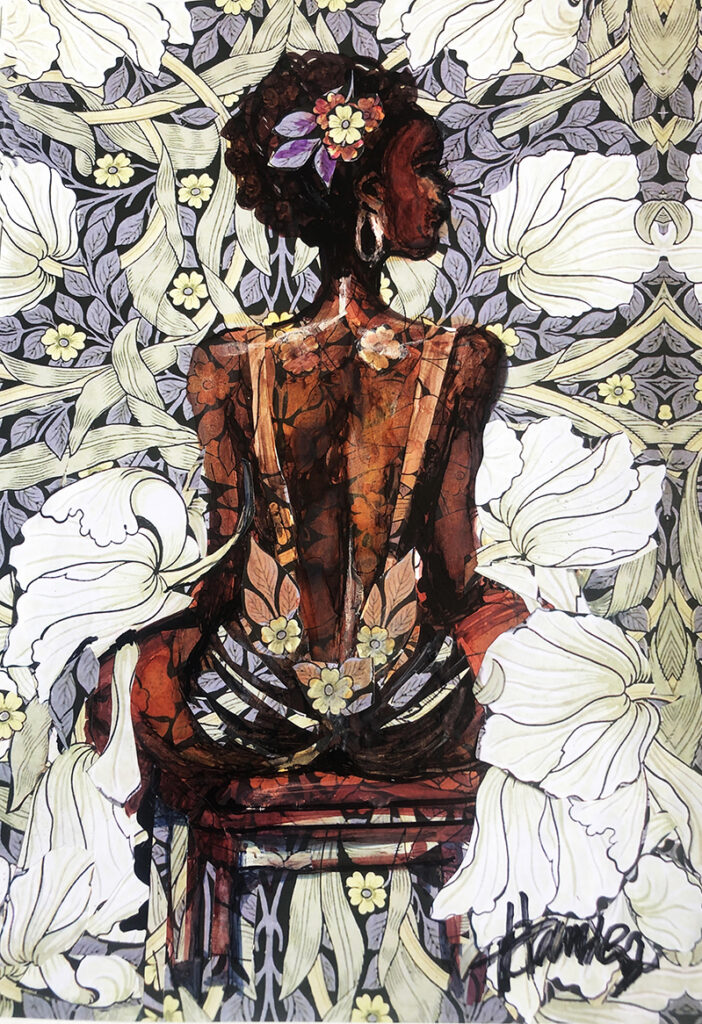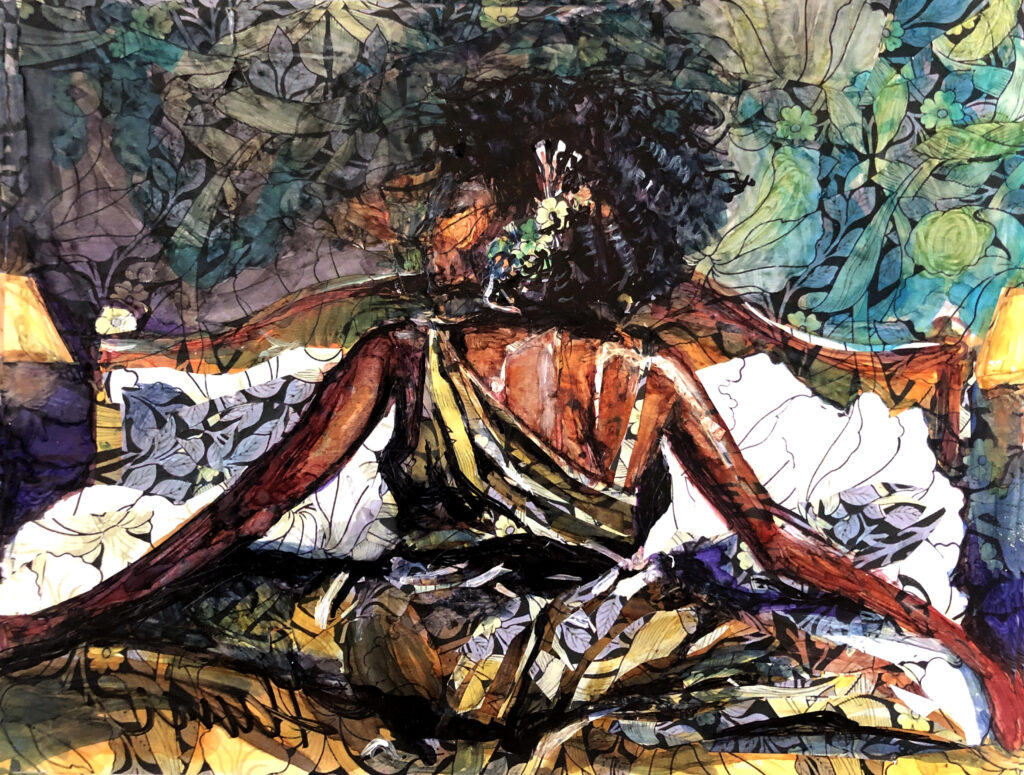Empty Bed Blues



Empty Bed Blues Collage Series
2024
8 x 10
Collage and Alcohol Ink on Watercolour Paper
Once I had a loving daddy
Just as good as he could be
But I haven't got a daddy
He's done gone away from me
And since he left me behind
Here's what's on my mind, I find:
Ain't got nobody to grind my coffee in the morning
Ain't got nobody to serve my breakfast in bed
My daddy went away
A week ago today
How'm I gonna find a-
Nother coffee grinder
Who could do my grinding like my sweet man could?
Ain't got nobody to light my brand-new percolator
Ain't got nobody to heat my oven for me
When my daddy was around me, he was oh, so good
He would haul my ashes, even chop my kindling wood
Ain't got nobody who would love me like my daddy could
And grind the coffee for me, I say
Grind the coffee for me!
Oh, my daddy used to love me pretty, I'll confess
And believe me, he was really different from the rest
Ain't got no other who could really put me to a test
And grind the coffee for me, I say
Grind the coffee for me!
Clara Smith was one of the first of the Blues Divas, who dominated the market for 'race music' in the early 20s, when recording opportunities first opened up for African American artists.
Known as the 'Queen of the Moaners', Clara's voice was actually light and sweet, but she first used it to express her inner pain with hard-done-by love songs like, 'Every Woman's Blues' and 'Moaning the Blues'.
Although Ma Rainey and Bessie Smith are much better known than Clara, she was a big star in her day, and she always had a record in the stores.
Clara was born in Spartanburg NC in 1894 (or maybe '95) and from the age of about 16 had worked as a cabaret singer on the TOBA circuit across the Southern States, starting in the chorus line and eventually headlining vaudeville revues.
She moved to New York in 1923 to get into recording, and was immediately signed by the Columbia label, who were desperate to get into a market that had been dominated by the Okeh and Paramount companies.
That year, Columbia also signed Clara's (unrelated) namesake Bessie Smith, and the women recorded several duets together in the next few years and shared the services of pianist and arranger Fletcher Henderson.
Clara was also joined on record by sidemen of the quality of Louis Armstrong, Charlie Green and Coleman Hawkins and she also recorded four vocal duets with guitar maestro Lonnie Johnson.
Clara's material in the first couple of years concentrated on rather gloomy accounts of lost love, getting her that 'Queen of the Moaners' tag, but she soon moved to more risqué songs like 'Whip It to a Jelly' and 'You Can't Get It Now'.
In a ten year career Clara recorded more than 120 tracks, and her sales for Columbia were only bettered by Bessie Smith herself.